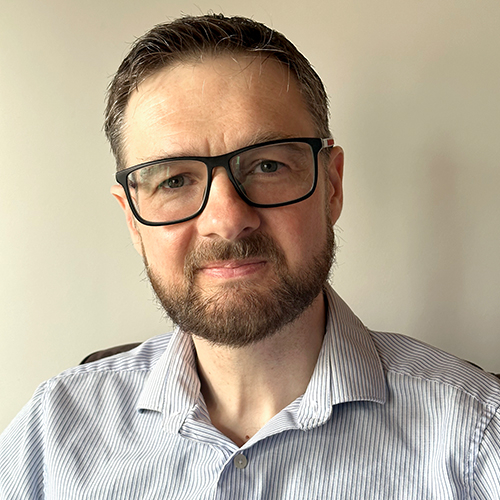 Brain/Neurodevelopment Online Course(s) & Continuing Education
Brain/Neurodevelopment Online Course(s) & Continuing Education
Access the latest clinical skills and research for Brain/Neurodevelopment for INFANT & CHILD HEALTH & DEVELOPMENT professional training. These Brain/Neurodevelopment online courses provide practice-changing skills and valuable perspectives from leading global experts. This Brain/Neurodevelopment education has been accredited for a variety of CEUs / CERPs and can be accessed on-demand, at your own pace.

Back to Birth: The Power of Primitive Reflexes to Rebuild Brain Foundations

Nikki is mum to 3 wonderful boys, one with significant physical disability. Diving deep into the world of disability, child development and neurobiology due to her son's Cerebral Palsy, Nikki learnt to look beyond standard protocols when seeking interventions for her family to find additional knowledge and understanding that can be incorporated with traditional approaches to enhance and personalise therapy and care. This approach ultimately led Nikki to discover the power of primitive reflex integration.
Nikki deeply believes that life and circumstances, no matter how entrenched they seem, can always be improved. She thoroughly enjoys the opportunity to work with families and individuals to realise the individuality of each family member and discover the increased health, development and ease that's achievable.
Nikki began her journey with Rhythmic Movement Training (RMT) in Melbourne in 2013 and was astounded with the positive changes such an easy and small intervention could make. She has since worked with adults and children, using RMT, to integrate retained primitive reflexes and to ease their associated challenges. She particularly enjoys working with children and delights in seeing them actively participate in the sessions and very quickly own and take control of their sessions. The profound improvements and changes they see and feel in their bodies continues to amaze her.
Nikki balances her RMT work with days in the classroom as a relief teacher, relieving across the years from Reception to Year 12. Being in the classroom is always a fascinating and enjoyable time assisting students and watching reflexes at work. Nikki is also fascinated in the transformative power of epigenetics and is a co-developer of ph360's Parenting360 Course.
In her play time, Nikki loves surfing, reading, pilates and running to keep her body feeling alive and moving and to keep life feeling manageable!
The primitive reflex system provides the very first foundational layer of development in the brain. Without reflexive movement to trigger brain development, the brain would not develop at all. As this development progresses, the activity of primitive reflexes in the body diminishes to the point that primitive reflexes are considered “integrated.” However, what happens when this doesn’t happen as designed and primitive reflexes are instead retained? Growing amounts of research are identifying the links between reflex retention and a wide variety of motor, learning, cognitive, physical, emotional and postural challenges.
This presentation examines some of the main primitive reflexes and explores what happens when the primitive reflex process is interrupted.
How is it interrupted? How do these interruptions manifest? And, most importantly, what can be done therapeutically to continue and support the primitive reflex integration process.


Nim Tottenham, PhD is a Professor of Psychology at Columbia University and Director of the Developmental Affective Neuroscience Laboratory. Her research examines brain development underlying emotional behavior in humans. In particular, her laboratory investigates the interplay between brain development and caregiving experienced by humans. Her research has highlighted fundamental changes in brain circuitry across development and the powerful role that early experiences, such as caregiving and stress, have on the construction of these circuits. She has authored over 130 journal articles and book chapters. She is a frequent lecturer both nationally and internationally on human brain and emotional development. She is a Fellow of the Association for Psychological Science and of the Society for Experimental Psychologists, and her scientific contributions have been recognized by the National Institute of Mental Health BRAINS Award, the American Psychological Association’s Distinguished Scientific Award for Early Career Contribution to Psychology, and most recently by the National Academy of Sciences Troland Research Award and the Flux Congress Linda Spear Award.
Human brain development is very slow, but there is value to this slow pace. This pace maximizes the chances for learning from developmental experiences (for example, caregiving by parents) and by doing so, developing highly sophisticated emotional behaviors by adulthood. Brain circuitry involving the amygdala and medial prefrontal cortex (mPFC) support fundamental aspects of emotional behavior (learning about, responding to, and regulating emotions), and in this talk, I will present studies that describe their development, including functional magnetic resonance imaging data showing age-related changes in amygdala-mPFC circuitry. I argue that the development of this circuitry in humans is intimately associated with caregiving, such that parents exert significant and enduring neural modulation during development.
The findings presented are highly consistent with the animal literature showing both large changes in amygdala-mPFC circuitry throughout development, as well as the large influence of parental care in shaping this neural circuitry. This talk will focus on both typical development as well as development following caregiving-related stress showing that early life environments may influence development through learning and modification of developmental trajectories. These age-related changes will be discussed in terms of potential developmental sensitive periods for environmental influence.


Ben Kingston-Hughes is an international keynote speaker, author and multi award-winning trainer. He is also the Managing Director of Inspired Children and has worked with vulnerable children across the UK for over 30 years. He has appeared on television several times working on a variety of children’s projects and his distinctive blend of humour, neuroscience and real-life practical experiences have made his training invaluable for anyone working with children. His new book, “A Very Unusual Journey into Play.” is now available.
This fascinating session explores the vital role of Play in developing and growing children’s brains. The session takes delegates on a neurological journey into the child’s brain, exploring the profound importance of play for brain growth, wellbeing and even life expectancy. Looking at a range of neurological studies, Ben Kingston-Hughes makes a compelling argument that Play is not merely an optional extra for a child but a fundamental building block for every aspect of their well-being and development. This session is entertaining, thought-provoking and might just help us build the brains of the future.


Mim Ochsenbein, MSW, OTR/L has been a practicing pediatric occupational therapist for over 25 years. She is the current Clinical Director of STAR overseeing a multi-discipline team, and previously was STAR's Director of Education. She received her BSc in Occupational Therapy from the University of Southern California (USC) in 1996 and her MSW from the University of California-Los Angeles (UCLA) in 2012. She has received advanced training in sensory integration (SIPT certification, STAR ProCert1, STAR ProCert2), listening therapy (Therapeutic Listening, iLs), feeding therapy (SOS), DIR, mental health (DC:0-5 Diagnostic Classification of Mental Health Disorders of Infancy and Early Childhood), and infant massage (CIMI). Her work in occupational therapy with children and youth has occurred in a variety of settings including early intervention, school based, clinic based, mental health and private practice. As a social worker, she provided case management, program development, and program management. Mim has taught both university level (California State-Dominguez Hills) and professional continuing education courses since 2013, spoken internationally, and has co-authored works for professional publications. She has been in her current role at STAR Institute since 2017 at the invitation of Dr. Lucy Jane Miller, PhD, FAOTA, OTR.
Having an understanding of the body’s sensory systems is an important part of understanding more about early childhood development. Sensory processing plays an important role in regulation, relationship and skill development. This presentation provides a look at the inter-connectedness of sensory processing-regulation-relationship by examining shared neurology and impacts on developmental trajectories.









